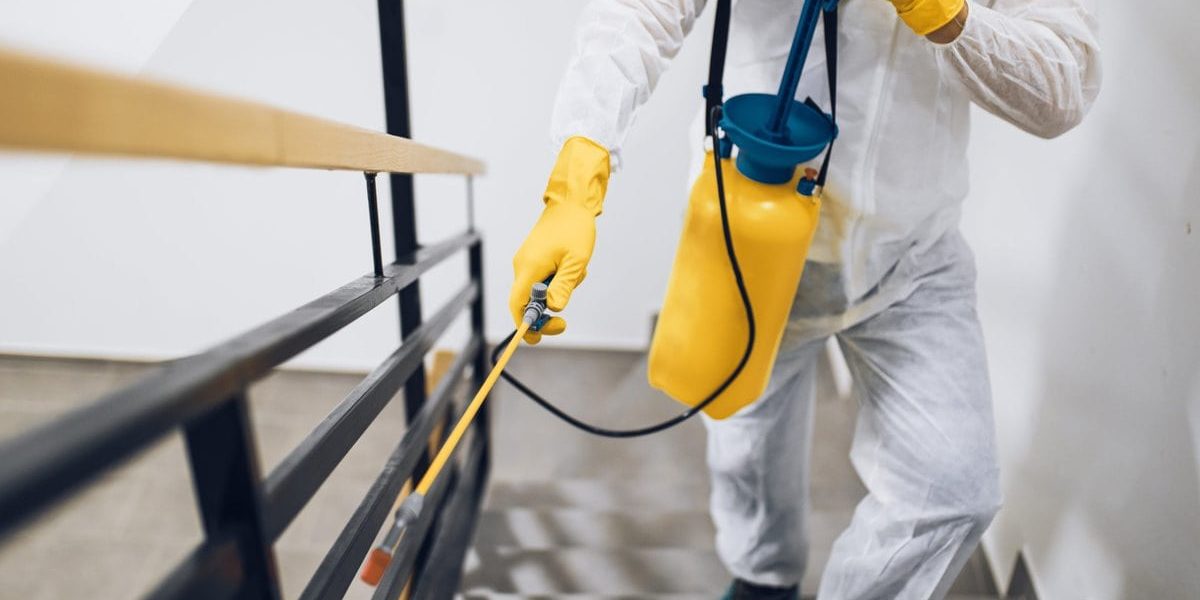Professional Parasite Control Techniques for Long-Term Outcomes
In the realm of parasite control, accomplishing continual effectiveness and long-term results requires a meticulous technique that transcends plain extermination. Specialist insect control strategies encapsulate a thorough method that begins with a thorough assessment and assessment, complied with by precise bug recognition to understand their actions patterns. The implementation of Integrated Bug Management (IPM) principles, paired with eco-conscious treatments, develops the cornerstone of lasting pest removal. The real examination lies in the ongoing surveillance and upkeep of the treated areas, making sure a pest-free setting for the foreseeable future. By delving right into the ins and outs of these strategies, a much deeper understanding of professional insect control techniques for withstanding end results arises.
Assessment and Analysis
Upon getting in a residential property for bug control solutions, the first action is a complete assessment and evaluation to recognize the level of the invasion and figure out the most effective therapy strategy. Expert insect control professionals are trained to carefully examine the properties, seeking indications of insect activity such as droppings, nibble marks, nests, or any type of structural damages. They will also analyze the conditions that may be bring in parasites, such as food sources, water leaks, or entrance factors.

Parasite Identification and Habits

Additionally, comprehending the behavior of the identified pest is vital to applying reliable control procedures. Recognizing where pests nest, what they feed on, and their task patterns can assist pest control professionals design approaches to eliminate them efficiently. Some pests might be nighttime, while others are extra active during the day. This knowledge permits for the application of therapies at optimal times for optimum efficiency.
Integrated Parasite Management (IPM)
Integrated Parasite Management (IPM) approaches combine multiple strategies to control and protect against insect problems in a sustainable and eco-friendly manner. Pest control Washington DC. By integrating approaches such as organic control, habitat control, alteration of cultural methods, and the usage of immune varieties, IPM intends to decrease making use of chemical pesticides
One of the crucial concepts of IPM is the focus on prevention. This positive technique involves monitoring bug populations regularly to find any type of prospective concerns before they escalate. By determining bug troubles early on, pest control steps can be executed quickly and effectively.
Additionally, IPM promotes the usage of safe bug control techniques whenever feasible. This can consist of utilizing all-natural predators of the pests, introducing advantageous bugs, or utilizing pheromones to interrupt mating patterns. By decreasing reliance on chemical pesticides, IPM not only safeguards the atmosphere however likewise assists maintain a balance in the ecosystem.
Environmentally-Friendly Therapies
Implementing eco-conscious strategies in pest control treatments can properly resolve problems while prioritizing environmental sustainability. Environmentally-friendly treatments concentrate on reducing the influence of parasite control techniques on ecological communities, non-target microorganisms, and human health and wellness. These methods frequently involve the usage of all-natural killers, such as ladybugs or nematodes, to control pest populations, This Site minimizing the demand for chemical interventions. Furthermore, methods like habitat manipulation, such as readjusting pest control dallas moisture levels or getting rid of food sources, can help hinder bugs without using hazardous substances.
Another secret aspect of environmentally-friendly therapies is the use of natural and biodegradable items that damage down rapidly without leaving unsafe residues in the environment. Agricultural insecticides originated from plants like chrysanthemums or neem offer efficient parasite control while positioning very little threat to non-target species. Moreover, employing approaches like heat treatments or scent catches can target particular pests with precision, decreasing the general environmental influence of pest control methods.
Continuous Monitoring and Upkeep
Routine evaluations by qualified experts are necessary to recognize any type of signs of parasite task, evaluate the effectiveness of previous therapies, and make modifications to the pest control strategy as needed. By monitoring parasite populations over time, pest control professionals can track trends, prepare for prospective concerns, and carry out preventive actions to lessen the risk of future invasions.
Along with surveillance, maintenance techniques are vital for long-lasting parasite control success. This includes executing appropriate hygiene measures to eliminate prospective food and water sources for go to the website parasites, sealing entry indicate protect against pests from entering the facilities, and attending to any kind of architectural problems that can facilitate pest infestations (bed bug heat treatment). By integrating continuous surveillance and upkeep right into an incorporated pest administration technique, organizations can make certain a pest-free setting and guard their home against costly damage and health risks
Conclusion
In conclusion, utilizing expert pest control strategies such as complete examination and assessment, exact parasite identification and understanding of their actions, incorporated insect administration techniques, environmentally-friendly treatments, and continuous tracking and maintenance are essential for attaining lasting lead to pest control. By implementing these approaches, people can efficiently handle bug infestations and maintain a pest-free setting in a sustainable manner.